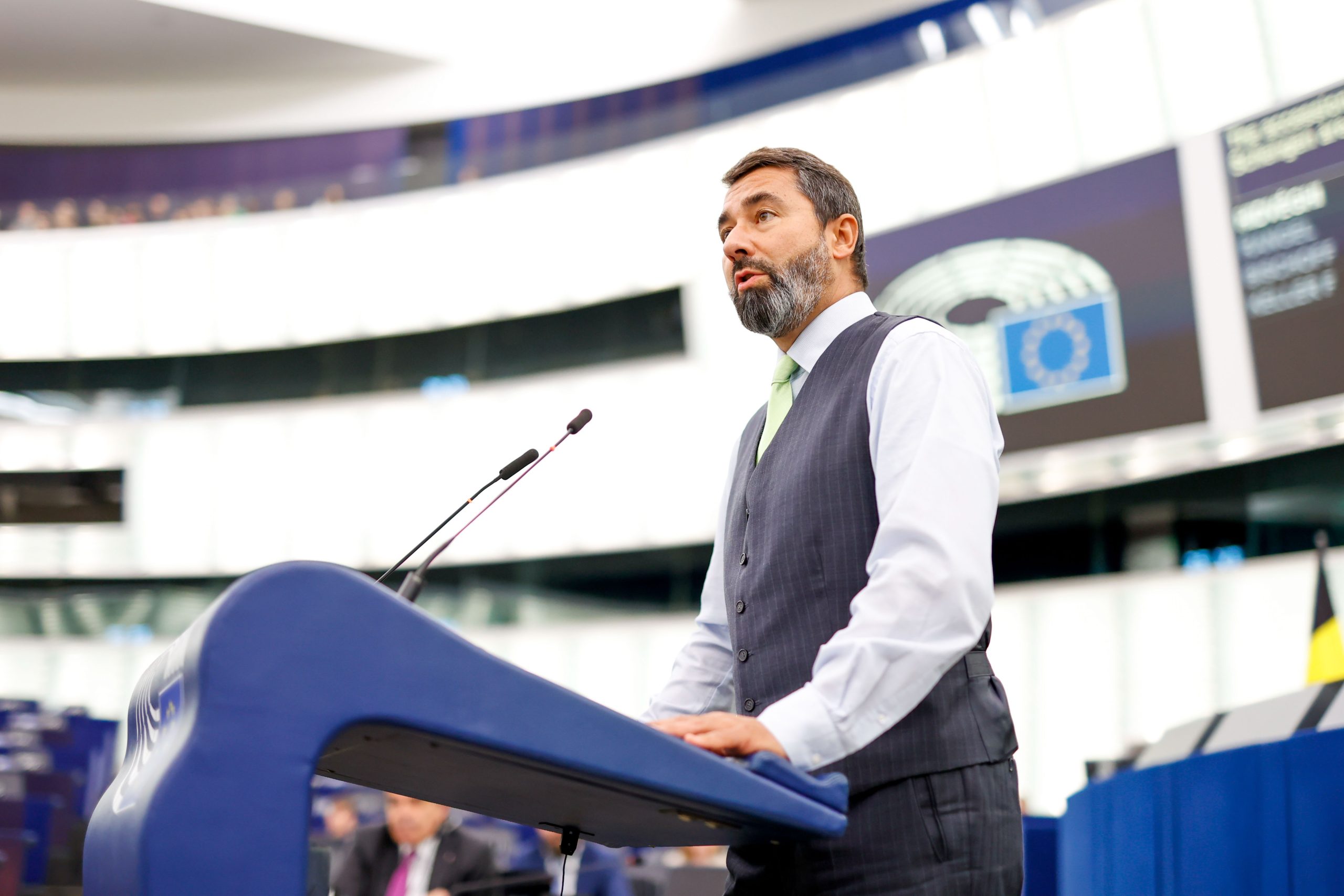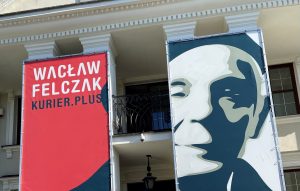
MEP Balázs Hidvéghi delineates the current situation regarding Brussels' migration pact.Continue reading
Only drastic steps on the part of EU member states and the EU institutions themselves can address the problem of the mass influx of migrants into Europe. Continuing on the current course could end in the disintegration of the EU – these are the main conclusions of the conference “The Decade of Move – Challenges and the Stakes of Irregular Mass Migration in Europe,” organized in Budapest by the Felczak Institute and the Hungarian Institute for Migration Research at the end of September at the Mathias Corvinus Collegium, as reported by the Polish news portal Do Rzeczy.
Illegal immigration will weigh heavily on the fate of the EU and Europe in the coming years. However, if Poland and Hungary, which demonstrated their strength at the last EU summit by blocking the forced relocation mechanism, gain some allies among the member states, this risk factor for the Union will be eliminated,” Prof. Maciej Szymanowski, director of the Waclaw Felczak Institute for Polish-Hungarian Cooperation, said at the beginning of the conference.

Photo: Facebook Waclaw Felczak Institute
Dr. Ralph Schoellhammer, a political scientist and migration expert from Webster University Vienna, stressed in his speech that a smoothly functioning multicultural state is a myth. The researcher recalled that Austria-Hungary was a multicultural country to some extent, but still everyone understood that one culture was dominant there.
There was a clear hierarchy of cultures in that country. It was a multi-ethnic country, but in its essence it was not multicultural. We usually confuse these things. It is impossible to build a cohesive society that is multicultural. You can have a well-functioning multi-ethnic or multi-religious society, but not a multicultural one,”
Dr. Schoellhammer stressed.
The Vienna-based researcher explained that culture cannot be reduced to trivial symbols, such as traditional food, as is often seen in the West. “Culture is about deeply held beliefs, things that people believe intuitively. Examples include how a man treats a woman, or how we raise children. This is the core of culture. You cannot build a well-functioning state where one part of society says that women must walk covered from head to toe, must be modest, and the other part believes that they should be sexually liberated. Such a society will not be able to function well,” Schoellhammer said.
For his part, Nicolas Monti, co-founder of the Paris-based Observatory on Migration and Demography, stressed in his speech that, according to polls, 67 percent of French people fear the so-called “great exchange,” i.e. the replacement of the native population by immigrants. As Nicolas Monti stressed, the “great exchange” is no longer treated as a “conspiracy theory” and is becoming a real problem in the eyes of the French.
Immigration to France threatens the cohesiveness of the nation, and this is becoming increasingly clear, Monti said, recalling the massive wave of riots that swept through the streets of French cities in the summer.
The big problem is the assimilation or even integration of these people into the national culture. It is actually virtually impossible. Instead, we see the creation of parallel societies in Europe. These people even reject European values. According to the researchers, a strong Muslim identity is an objective obstacle to accepting European values, especially the leftist values promoted by European institutions today, said Prof. Tomasz Grzegorz Grosse, a Europeanist from the University of Warsaw. Radicalization, riots, revolutions, civil wars – these are the prospects facing Europe. Immigration is a great threat to European integration. After all, if Brussels, Berlin and Paris push the migrant relocation mechanism, it will obviously be against the will of voters in countries such as Poland and Hungary, Prof. Grosse said.
Róbert Gönczi, who moderated the debate, asked the panelists whether Europe knows of positive examples of migrant integration. Dr. Schoellhammer pointed out that a great example is… Europeans themselves, who relocate and work within the EU, integrating well. As for non-European newcomers, on the other hand, positive examples include immigrants from Latin America, who are particularly visible in Portugal and Spain, as well as Vietnamese in France, and Iranians coming to Germany, among others. Experts agreed with each other that in principle, however, the deep cultural differences between Muslims and European residents make integrating such immigrants extremely difficult and usually end up building a so-called parallel society.
During the second panel, experts considered, in turn, the biggest challenges facing the EU as a whole in the context of defending common borders.
Witold Repetovich, an expert on terrorism and an expert on the Middle East, stressed that Europe is slow to recognize the problem.
According to the expert, there are only three responses to the migrant crisis. The first is to try to reach an agreement with African countries that can stop the migrants. However, this is a policy fraught with risk. This is because the demands of the regimes will grow. The second answer is effective border protection. This, however, means using force, and of course there will be casualties. This cannot be implemented quickly, because Europe is not psychologically ready for such a policy. The third solution is simply capitulation: giving in to migration pressure,” said Witold Repetovich.
Via Do Rzeczy, Featured Image: Facebook SOS Mediterranee